An Interview: BJ Mackinnon and Her Garden
I’m deviating from my usual format and presenting this entry in the form of an interview! My dad’s birthday happened a few weeks ago, and my family had a small dinner party to celebrate. We invited a few family friends, but because of the threat of snow, only two were able to make it. They’re a couple–BJ Mackinnon and John Miller–that my parents have known since before I was born; their laughter and anecdotes filled the room, and we were so happy to have them in our home.
The conversation turned, as if often does in my family, to friendly debate about social issues. We spoke of food systems, film, and feminism; in the midst of this, my blog was mentioned, and BJ and I began a discussion on food and gardening.
I expressed interest in interviewing her and sharing a bit of her life, since I admire her for being such a dedicated, passionate, and kind individual. She has graciously granted me permission to publish this interview, including the gorgeous photos that display the literal fruits of her labor.
I’m a family gardener of over 40 years; myself and my husband, John Miller, have a small farm of 10 acres, one acre of which is a 400-vine vineyard. The family gardens include most all the year’s fruits and vegetables, multiple flower gardens, (enough for 2-3 new bouquets weekly) and enough vines for a daily bottle of wine (if needed!). These feed my family and friends physically, mentally, and spiritually.
My life’s work, that dovetails into gardening, is Midwifery. (She sees parallels between cycles of growth and birth in plants and in people; between seasonal cycles and bodily cycles, etc.) I have attended the births of over 1,000 babies, including the birth of your blogger! This work has fed my soul and spirit for the last 35 years. I’m currently working part-time in a community health center, where I’m fortunate and humbled to serve women from all over the world.
I asked BJ a series of questions about her past, her current lifestyle, and her intentions for the future.
Casey: How did you learn to grow your own food? Growing up, did you family have a garden?
BJ: I did grow up with a garden heritage. Both sets of my grandparents had large family gardens, and my own family had a garden some of the time (that wasn’t consistent). When I grew up and we bought our first house, I wanted a garden right away. I have had a garden ever since – thats 42 years now. I am starting my 43rd garden today by planting seeds.
Casey: Why is it important to know where your food comes from?
BJ: I learned over the years that the food is such better quality, and mostly that it tastes so very much better. I know what goes into it, and recognize the health benefits as anyone who grows a garden eventually decides.
Casey: How did you impart the importance of good food to your children? Do they also grow their own food?
BJ: Learning by example is probably the best answer to this. We just grew and served the good fresh foods and enjoyed cooking together, and we still do. I probably also told them “eat it up – it’s good for you”! They heard me constantly tell my clients about good nutrition.One of my children has a house with a small garden, two others live in city dwellings with no gardens, and the other has a small garden as part of a community coop plot.
Casey: How does living off of your own land tie in with your other life philosophies?
BJ: Growing food, making products from the foods, storing foods, sharing seeds, using a greenhouse, growing a garden and a vineyard, all come as part of a philosophy of getting “down to earth”. Things from the earth, “natural” products, and a natural way of organic style living all speak to me as part of being connected to the “real life” as opposed to commercial living. I like to strive towards minimal living and small footprints. This goes hand in hand with doing projects from scratch, making use of natural energies in an ecological way, working at keeping yourself healthy, making use of medical systems that are tried and true (with evidence-based research). If I picked any one area of my life, I can always make an analogy to gardening because growing a garden is living/life.
Casey: How do you handle the upkeep of your land while balancing other work and commitments?
BJ: When we worked in the community more, we did less with the gardens. We weren’t as conscientious as we are and have the luxury of being today, but the plants forgave us and still thrived. Now we have fewer work days and more time to devote to this wonderful garden, and the multitude of gifts it gives us is humbling. The balance is divided by whatever the needs are–it all works.
Casey: What are your feelings on the current American food system and the Standard American Diet?
BJ: This is such a deep and layered question, and there are so many aspects of what is going on in this particular area today. We can look at the multitude of different programs that try to address the problems and the concerns, as well as the ones that try to teach how to make change and wonder if they can address the system and the diet. My wish is that we could roll these programs into one giant “fix it” program where everyone could come and understand the nature of foods, have the money for what they need, fix the neighborhoods where there are no fresh foods, grow fresh veggies if they want, eliminate the preservatives in favor of fresh food markets, get all the pesticides out of foods, buy foods from local organic farmers, get good foods into the schools, eliminate the poverty that pushes folks in to high calorie-low nutrient foods, put enough high quality calories on to people’s plates often enough, have a system where people had transportation to these markets and stores, fix agribusiness/farming so that it didn’t need to succomb to the altered seeds and chemicals, eliminate the antibiotics in our meats as well as fix the slaughter houses so they are clean and humane…those are only some of the problems. Oh my, the system has much work to do to change the diet. We need an entire revolution. (Heck yes, we do!)
Casey: How do you feel that living in a more rural area has contributed to your quality of life?
BJ: We chose to live here for the very reason of small farming for our needs. We now have the luxury of growing close to 60+% of our foods between April and November and a smaller portion in the colder months. This could never have happened for us in a suburban setting. This has given us sense of purpose, a great love for the outdoors, and sunshine in our lives. Not to mention the good air and the feeling of peace a long day of work brings. Our lives are greatly enriched by friends coming to work and play with us and to share a bountiful meal. What more could there be?!
Casey: How do you use your bounty? Do you freeze and can a good portion of the food you produce?
BJ: We put up a very large part of the garden. We freeze berries and fruits, and some veggies – not that many, as we eat most of them and frozen is not so tasty. We dry foods such as tomatoes, herbs, some veggies and fruits. We grow “keepers” such as potatoes, onions, garlic, squash, pumpkins, and have a cold storage area for them. I do can as well and am always thinking of new products to can. We use this bounty throughout the winter season, and often have too much in the pantry in the spring! winter soups are a particular favorite as we can use so much of what we grow in them; they’re a real treat for us.
Casey: How did you start the vineyard? Do you consider wine production to be your main passion, or just a hobby?
BJ: We started the vineyard after meeting a German couple who introduced us to many of the different wines, over 40 years ago. We looked for a piece of land on which to plant vines that we had researched and found would grow in this area. It has been a long and slow learning curve for us to make really good wine by growing the best grapes we can. There is so much to learn about how to grow good grapes, and make trellises; when to pick, how to prune, how to cultivate; how to protect the vines and fruit, how to make the wine; it is a lifelong passionate hobby. That, combined with the garden, is very fulfilling.
Casey: What does the future hold for you? Do you see yourself spending the rest of your life in this home, or moving to other places? Will you continue to garden?
BJ: Ah this is a question we mull over all the time. We do love traveling in the winter and taking a few shorter trips in the warm days (when the gardens can let us go). Mostly we answer: as long as we can do it, we will. None of the work is particularly taxing; most of the work can be done with four hands and some basic tools. We have a good tractor that helps when needed. Some days are long and tiring, but they make us feel healthy. Good work makes you feel good. Can we continue? Probably. Will we? Maybe probably… !! We’ll see what tomorrow brings. Now, back to planting my seeds.
It was a joy to interview BJ, and I’m grateful that she let me do this interview. I hope you all enjoyed it (and all of her gorgeous photos)!
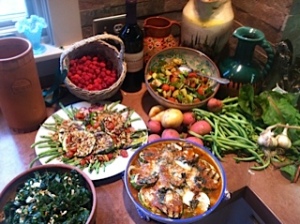
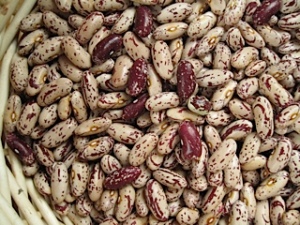
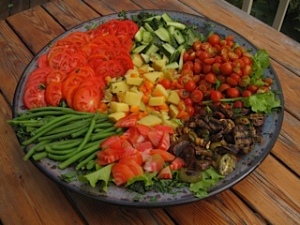
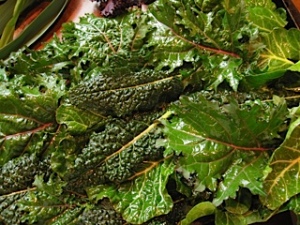
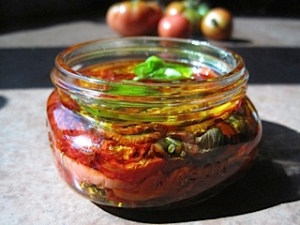
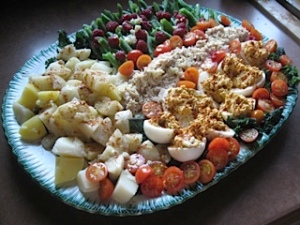
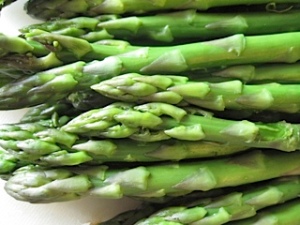
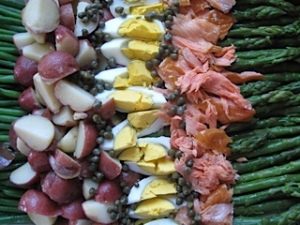
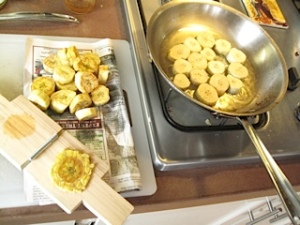
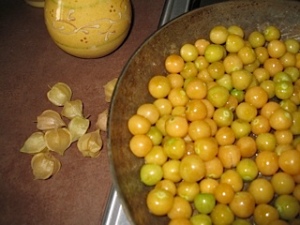
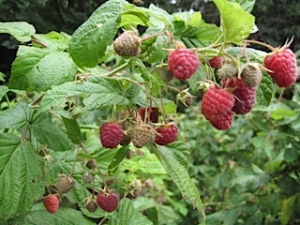
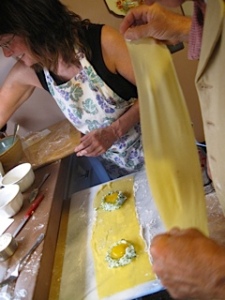
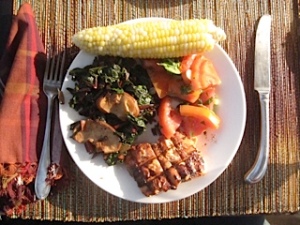
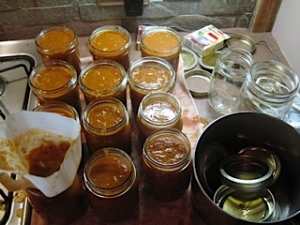
Thank you Casey for this opportunity! – bjm